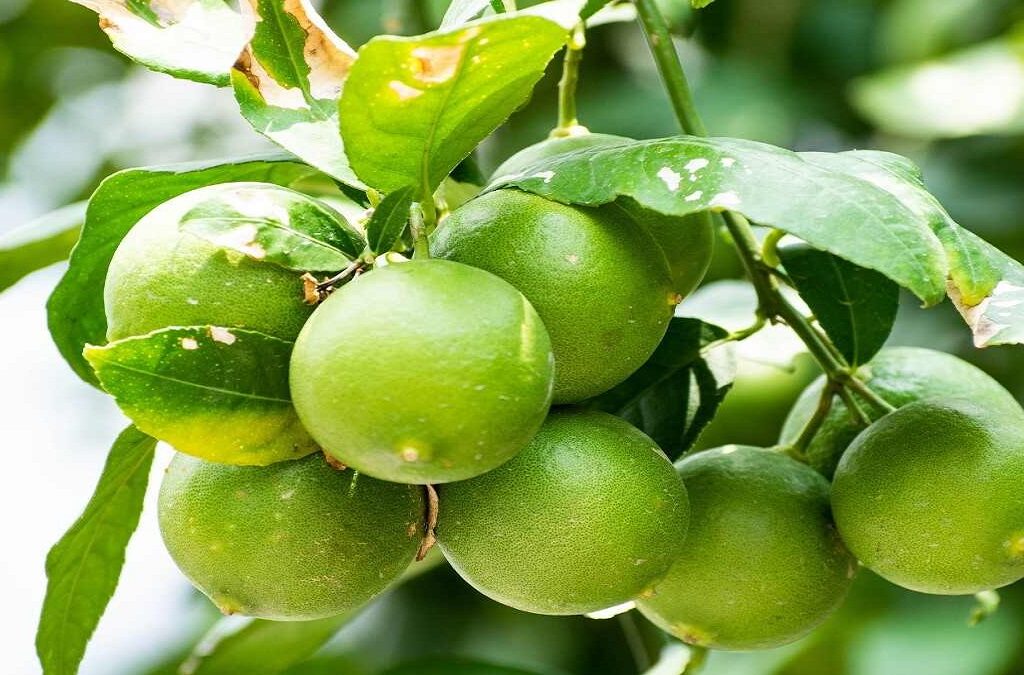Lemon tree: lemon plant farming and Lemon health benefits

Lemon, with its vibrant yellow color and tangy flavor, is a tiny yet versatile fruit packed with health benefits, notably rich in vitamin C. Its immunity-boosting properties and abundance of vitamins make it a celebrated fruit worldwide.
Introduction
Scientifically known as Citrus Limon, lemon belongs to the citrus genus and grows on evergreen trees bearing fruit year-round, adorned with glossy leaves and white flowers. The citric acid content in lemons contributes to its wide array of health benefits, making it highly sought after in the fruits and vegetables category.
In this blog, we delve into the intricacies of lemon, from farming practices to its health benefits and beyond.
Lemon Farming
Lemon farming entails planting saplings in well-draining soil, thriving in warm, subtropical climates with ample sunlight. While cultivating lemon trees from seeds may not yield productive results, grafted lemon plants are preferred for their higher productivity.
Lemon Types and Varieties
Popular lemon varieties include Eureka, Lisbon, Meyer, Ponderosa, and Femminello, cultivated in well-drained soil with a pH level between 6 and 7, preferably slightly acidic to neutral.
Diseases and Challenges in Lemon Farming
Lemon farming faces challenges such as diseases like citrus canker and citrus black spot, affecting yield and fruit quality. Pruning, training, and timely harvesting are essential practices, while drip irrigation ensures adequate water supply, particularly during dry spells.
Market and Utilization
Lemons enjoy significant market value, finding use in various food products and household cleaning solutions, owing to their refreshing flavor and antimicrobial properties.
In summary, lemon stands as a versatile fruit with numerous applications, from culinary delights to medicinal uses, making it an indispensable asset in agriculture and daily life.
Cost Of Production Per Acre
| Item | Rupees per Acre |
|---|---|
| Land Preparation | 3000 |
| Digging Pits | 5000 |
| Plant Materials | 10000 |
| Lemon Planting | 3000 |
| Cost of FYM (Farmyard Manure) | 7500 |
| Cost of Fertilizer | 2000 |
| Fertilizer Application | 3000 |
| Irrigation | 3000 |
| Plant Protection | 2000 |
| Application of Plant Protection | 1000 |
| Harvesting (From 4th Year) | 8000 |
| Total Cost | 47500 |
Source of Information: Agricultural Magzine
Health Benefits of Lemon
Lemon is a rich source of vitamins, particularly vitamin C, renowned for its immune-boosting properties. Regular consumption of lemon can aid in wound healing, promote skin health, and reduce the risk of heart disease.
Weight Loss: Drinking lemon water, especially with hot water, is believed to aid in weight loss by boosting metabolism and promoting hydration.
Blood Pressure: The high vitamin C content in lemon may contribute to maintaining healthy blood pressure levels.
Immune System: Lemons provide a healthy dose of vitamin C, strengthening the immune system and aiding in fighting infections.
Heart Disease Prevention: Regular consumption of lemons may help regulate cholesterol levels, reducing the risk of heart disease.
Iron Absorption: The vitamin C in lemons enhances iron absorption in the body, aiding in the prevention of iron deficiency anemia.
Kidney Stone Prevention: Lemon water consumption may reduce the risk of kidney stone formation by increasing citrate levels in the urine.
Clear Skin: Antioxidants in lemon water can promote clear and healthy skin by reducing blemishes and signs of aging.
Nutritional Quality of Lemon
Lemons are rich in essential nutrients, including vitamin C, dietary fiber, minerals like potassium, and B-complex vitamins.
Lemon Products and Their Uses
Lemon tea powder: Convenient option for making lemon tea at home, providing a tangy flavor.
Lemon pickle: Tangy and spicy addition to meals, aiding digestion and offering essential nutrients.
Lemon juice: Used in various foods and drinks for its refreshing taste and high vitamin content.
Lemon salt: Seasoning with the flavor of lemon and the goodness of salt, enhancing the taste of dishes.
Lemon water: Mix of lemon juice and water with potential health benefits like hydration and kidney stone prevention.
Lemon tea: Popular beverage made from lemon, offering the tangy goodness of lemon.
Lemon color: Food colorant derived from processed lemons, used to enhance the appearance of foods.
The Difference Between Lime and Lemon
Lemon: Yellow, larger, bright and tart flavor, added to dishes for taste enhancement, some varieties are sweet.
Lime: Green, smaller, more intense flavor, used for strong citrus flavor in foods, typically tart.
Side Effects of Lemon
Tooth Erosion: High acidity in lemon can erode tooth enamel.
Skin Sensitivity: Lemon’s acidic nature can increase skin sensitivity to sunlight.
Allergic Reactions: Some individuals may be allergic to lemon.
Stomach Issues: Lemon consumption may cause stomach discomfort or heartburn in sensitive individuals.
Citrus Allergy: Citrus fruits like lemon can trigger allergic reactions in susceptible individuals.
Conclusion
Lemons offer numerous health benefits, including immune support, weight management, and skin health. However, they should be consumed in moderation, and individuals with specific health conditions or allergies should exercise caution.
FAQ: Frequently Asked Questions
1) Difference between lime and lemon?
Lemons are yellow, larger, and have a bright tart flavor, while limes are green, smaller, and have a more intense taste.
2) Does lemon water aid in weight loss?
Lemon water can contribute to a healthy lifestyle and hydration but does not directly cause weight loss.
3) Do lemon juice and lime juice burn fat faster?
No, they provide hydration and vitamin C but do not directly burn fat.
4) Can freshly squeezed lemon cure the flu?
While lemon is rich in vitamin C, which supports the immune system, it cannot cure the flu but may help in recovery.
